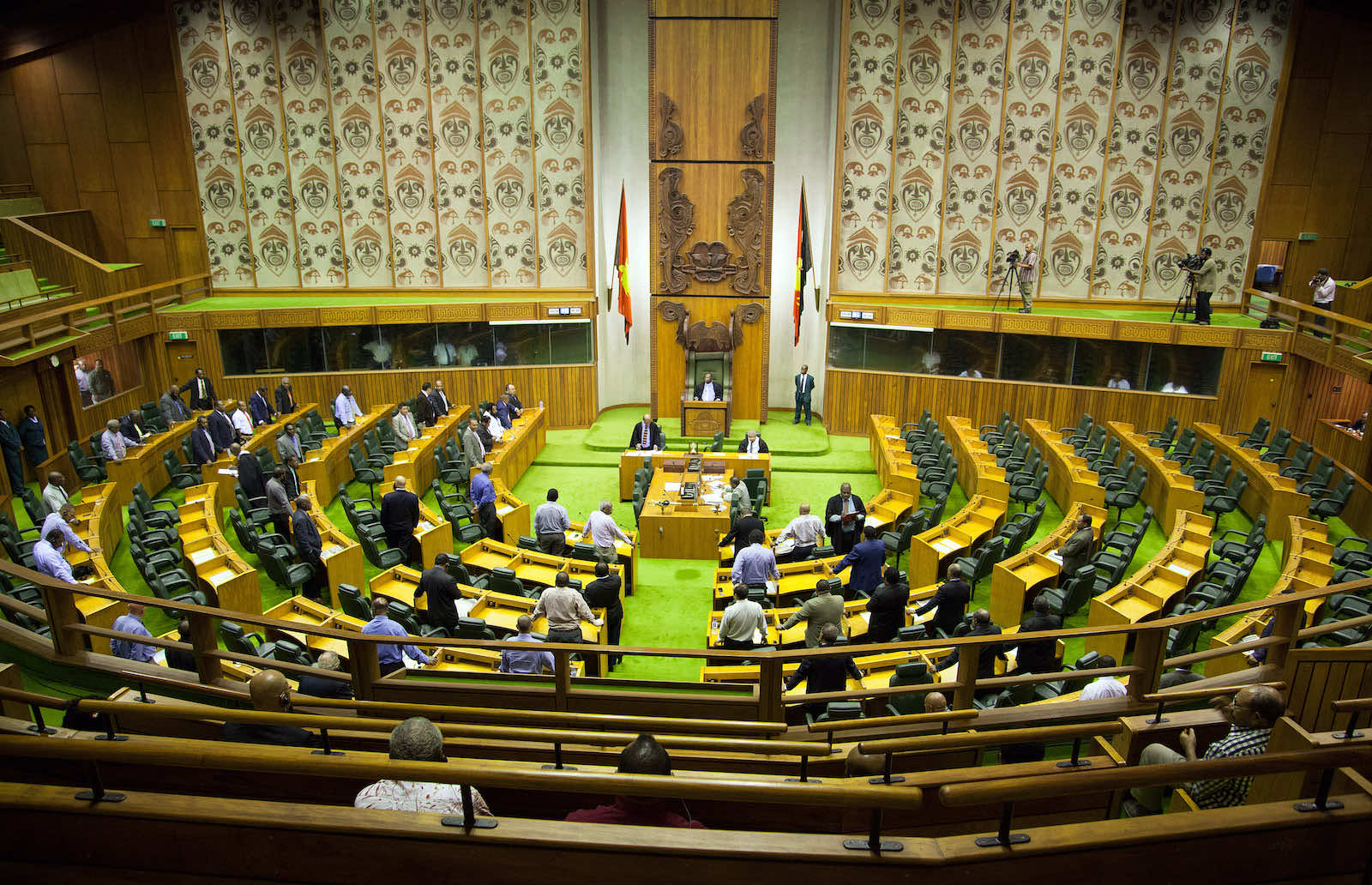Papua New Guinea Parliament has been adjourned to 10am, 15 April 2025, to allow members to deliberate on a motion of no confidence against Prime Minister James Marape.
Parliament reconvene this morning with the Speaker Job Pomat addressing all Members of Parliament on the Parliament procedures and process in dealing with its matters.
There has been growing tensions and concerns regarding the government’s performance and handling of various issues, including economic challenges and governance.
The motion has been brought forward by opposition members who argue that a change in leadership is necessary for the country’s progress.
This adjournment provides time for both sides to prepare their arguments and gather support from other members of Parliament.
The April 15 session of Parliament, will be crucial, as it could determine the political landscape in Papua New Guinea, depending on the outcome of the vote.
As the date approaches, political analysts and the public will likely be closely watching developments, with significant implications for the government’s stability and the future of Prime Minister Marape’s administration.
Pomat warned that Parliament is one of the three executive arms of Government that has its own process to foll+ow.
Meanwhile, Our Pati has declared its firm allegiance to the Pangu-led government and Prime Minister James Marape, citing the critical importance of stability as Papua New Guinea approaches its 50th anniversary of independence and faces an impending Vote of No Confidence.
Mining and Special Projects Minister and Our Pati Leader, Rainbo Paita, asserted that the current period necessitates national unity and development rather than political disruption.
“This is no time for political instability — it is a time for nation-building at a challenging time in our nation’s history,” he stated.
Paita highlighted the detrimental effects of political instability, referencing past experiences where it eroded investor confidence, delayed crucial projects, and hampered governance.
He drew parallels with nations like Singapore, Rwanda, and Fiji, which have thrived through consistent leadership and policy.
“Our Pati refuses to enable this cycle. We stand with this government committed to reform—and we will hold it accountable to deliver,” he affirmed.
Following the anticipated vote, Our Pati has outlined key priorities for the government, urging transformative action in several areas:
*Strengthening institutions: To ensure accountability and efficient service delivery.
*Public service reform: Aiming to replace inefficiency with tangible results.
*Resource law revision: To maximise benefits for PNG citizens.
*Revenue enhancement: Through improved compliance, SME growth, and fair tax enforcement.
The party acknowledged the government’s ongoing reform agenda, including mandatory downstream processing of resources, block grants to provinces, decentralization efforts, and investments in law and order.
In addition, Our Pati called for urgent electoral reforms, including:
*Biometric voting systems: To combat voter fraud and eliminate ghost names.
*International observer partnerships: To ensure electoral transparency.
*Early preparations: For a free and fair 2027 election.
“Our choice is clear: unity over division, stability over chaos, leadership over opportunism,” the statement concluded.
“Our Pati remains committed to a prosperous, independent PNG—and we will keep working within government to turn promises into progress.”














